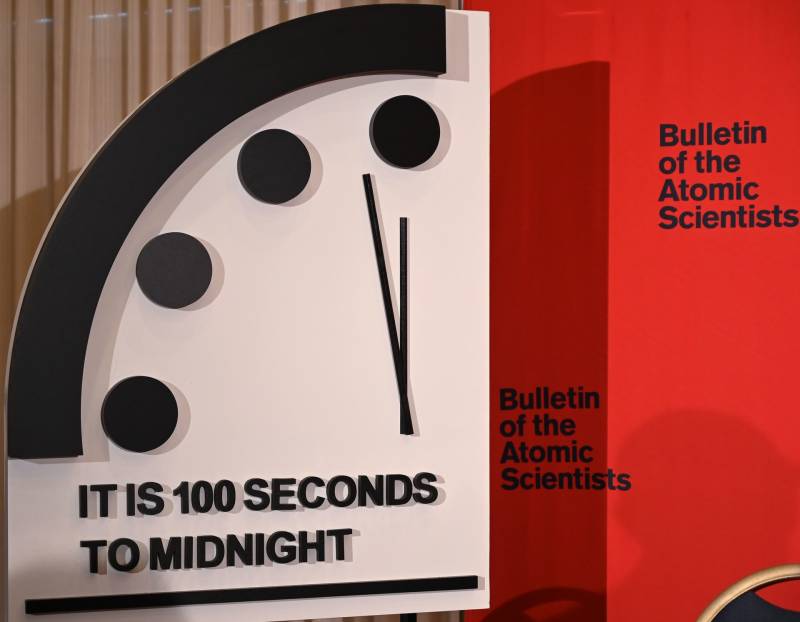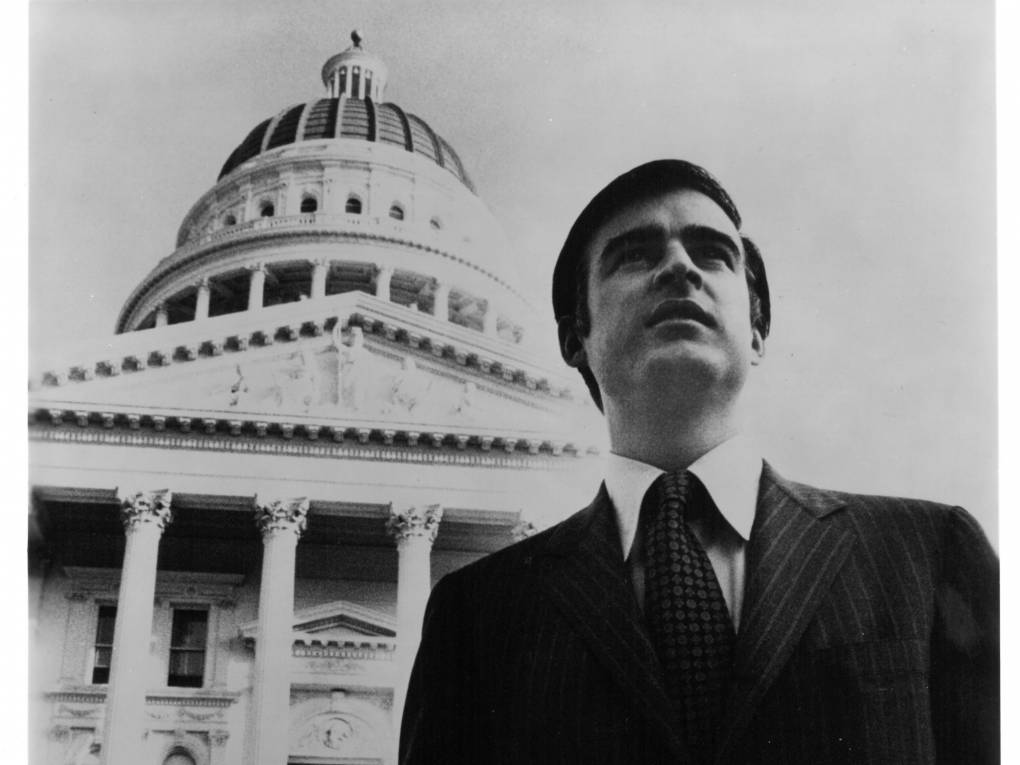Two years after moving the metaphorical minute hand of its Doomsday Clock to within two minutes of midnight — a figurative two-minute warning for all humanity — the science and security board of the Bulletin of the Atomic Scientists revealed Thursday that it has moved that minute hand another 20 seconds closer to the midnight hour.
"It is 100 seconds to midnight," declared the Bulletin's president and CEO, Rachel Bronson, at a Washington, D.C., news conference as a black cloth was lifted to reveal the clock.
Never since the clock's 1947 Cold War debut has it come so close to the putative doomsday annihilation represented by the 12 a.m. hour.
"The Doomsday Clock is a globally recognized indicator of the vulnerability of our existence," said former Irish President Mary Robinson at the annual clock-unveiling ceremony. "It's a striking metaphor for the precarious state of the world, but most frighteningly, it's a metaphor backed by rigorous scientific scrutiny."
With 13 Nobel laureates on its board and founded by scientists who worked on the atomic bomb-building Manhattan Project during World War II, the University of Chicago-based Bulletin of the Atomic Scientists has used its Doomsday Clock to register existential threat levels and raise awareness of them.


9(MDAxOTAwOTE4MDEyMTkxMDAzNjczZDljZA004))
